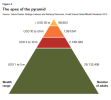I have my doubts you could regulate and have a planned/command economy across 8,000-light-years, especially since there would still be scarcities, like the one you bring up; real estate. Yes, there's new land available in off-world colonies, but (if we go by the way real estate works in the present-day) not all real estate is equal. A plot of land on Earth arguably doesn't have the same value as a similar area on a frozen Andoria or the deserts of Vulcan, the same way a house on a California beach has a different value than one in the middle of rural Oklahoma flat land.
True, different Real estate locations have different value, but given people need to work and would most likely rather work near their place of employment then to take some form of transportation, they get to choose where to live. Most folks won't want a commute that eats up lots of Federation Credits or Consumes alot of Energy.
That obviously relegates a persons residency to be some what close to their occupational place of employment.
One big problem with planned economies has been proper allocation of resources without a market to (in theory) regulate how much is produced and needed. The same issues would come up with anything that's specific to a certain area and can't be replicated. An obvious one is dilithium, since through Discovery we know it's a finite resource that will become limited and have a high demand.
The plan is to have a market to regulate. No where did I say you were forced to live in ___ area.
I just said limit 1x Residential Property per Adult Citizen who is a resident of that Planet/Region/Country/State/County/City/Town/etc.
That helps control the Demand side of the Supply / Demand curve in any 'Regional Real Estate market'.
You don't have too many potential outsiders buying into Residential Properties to treat them as Investment Real Estate properties to act as a store of Wealth.
We want to avoid the Vancouver Real Estate bubble that is going on, also avoiding what is happening in San Francisco & NY with their Real Estate inflation.
Most Couples or Polygamous Family Units would probably live together and raise their families.
That gives them some options where the extra Residential Properties that are owned by the other Citizens can be turned into Rental Units to gain some additional income for the family unit.
But another issue is something like specialized services that are specific to a certain place. How about a vacation on Risa? Does it cost anything to go there?
The Cost of Travel should still exist, it takes Energy & Matter Resources to move between places.
Doesn't matter if it's via StarShip / Shuttle / Transporter.
All of those methods of Transportation costs something.
That should factor into the ticket price for travel between planets or anywhere else.
Even if it doesn't and it's rationed, it's a finite resource. There's only so many hotels, with so many rooms, and so many hours and days in a year, and so many people that can provide "services" to guests.
That's why there should still be tradtional competition between hotels for the customer to stay.
How exactly do you ration out the equivalent of a trip to Disney (Sex) World to 150 Federation member worlds?
Booking of time between the Workers & the Guests along with how much it costs to participate in their services.
Everybody has a schedule, and they can scheduule their "Fun Time" and how much it costs for their services.
And that's even before we get into what kind of system you would need to compliment the people who come from non-Federation worlds to visit, since Quark is able to go to Risa too in DS9.
Conversion of Currency from their Worlds Currency Standards to UFP equivalent.
I'm sure the UFP already has a Currency exchange with the Ferengi Alliance.
Also, even if you are able to regulate the value of a Federation Credit within the Federation to control its value, trying to have it be worth anything beyond the Federation would become an issue.
That's true of any species you have never met and have not established common trade values for basic goods & services along with basic valuation of currency.
But lets leave that to the Economists, Scienctists, & Diplomats to regulate once we get past "First Contact".
This is why I think there's some new "economic" philosophy/reality we haven't figured out yet. For example, you could go with the Roddenberry concept of human nature changing that Picard touches on in First Contact, where the entire social science calculus of how humans behave in the pursuit of resources has changed so much that how people consume things don't obey present economic rules.
Of course, different rules for how the Economy works means people have to play the Economic Game in a different way.
Star Trek exists in a universe where on Earth the world's present-day religions have lost their influence. So it's not far of a leap to go if human society has shifted so far in that aspect, why couldn't have they totally shifted in other areas like economic behavior?
I'm basing my ideas of Regulation on countering human behavior and their more "Primal Selfish Instincts".
Having a more Regulated Economy that balances out against the Selfish Actions of an Individual that is trying to snowball the Economic Game for Personal gain w/o doing any "REAL Hard Work" is supposed to be "MUCH Harder" than before.


